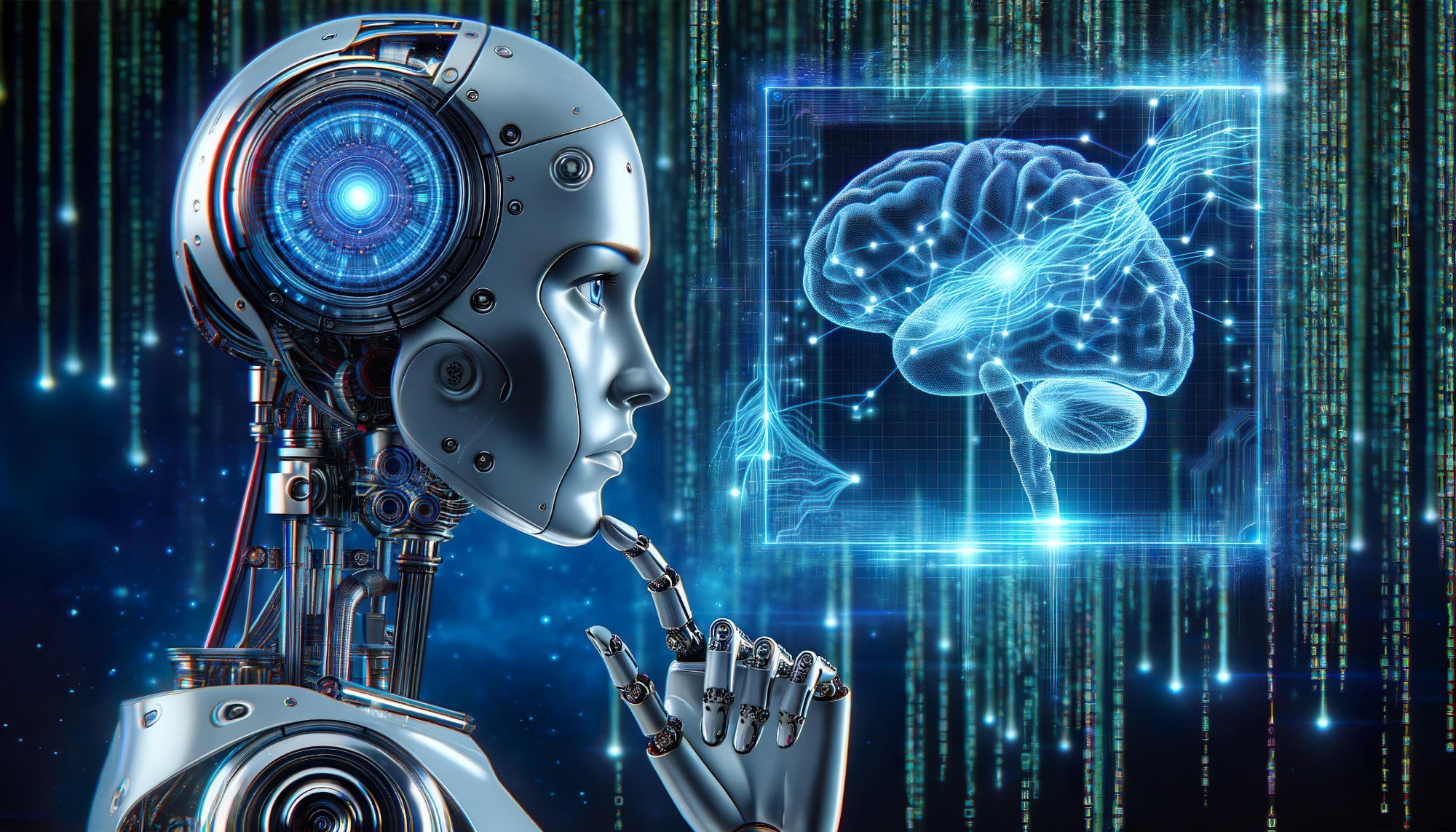
We may make cash when you click links to our partners. Discover more.
What is artificial general intelligence (AGI), and why does it matter? As one of the most talked-about subjects in technology today, it has triggered a race among leading business like OpenAI and Google to turn this innovative concept into reality. Understanding AGI is crucial due to the fact that it has the possible to revamp industries, affect our society in profound ways, and change the method we engage with innovation. Here's what you require to understand about what it may be able to do, how it might change markets and fields, and the substantial difficulties facing its advancement.
KEY TAKEAWAYS
• AGI varies from standard AI in key methods in that it would be able to believe, discover on its own, and adapt to new difficulties like human beings unlike standard AI, wiki.rolandradio.net which is designed for specialized tasks and runs within a limited scope. It needs humans to upgrade and fine-tune capabilities. (Jump to Section).
• Once it comes true, AGI would have the ability to make remarkable advances in several fields, including health care, research, and financing sectors. (Jump to Section).
• Creating AGI is difficult due to the research challenges that consist of technical, ethical, and societal concerns. Addressing these difficulties is main to maintaining the safe and favorable advancement of this innovation. (Jump to Section)
Featured Partners: Expert System Software
Learn More
TABLE OF CONTENTS
What is Artificial General Intelligence (AGI): A Clear Definition.
Understanding AGI vs Traditional AI.
Potential Applications of Artificial General Intelligence.
Challenges in Artificial General Intelligence Research.
3 Introductory AGI Courses to Consider.
Frequently Asked Questions (FAQs).
Bottom Line: Why Knowing What Is Artificial General Intelligence Matters.
What is Artificial General Intelligence (AGI): A Clear Definition
Artificial basic intelligence, or AGI, describes a kind of expert system (AI) that can interpret, find out, and carry out any cognitive task that a human can do. Unlike today's AI, which is constructed to handle specific jobs like recommending items or processing data, AGI would be able to adjust to brand-new obstacles and apply understanding across different fields. In other words, this sophisticated type of AI would think and reason like a human. While AGI holds excellent potential, it's worth noting that it is still an idea today, without any fully established systems readily available yet.
Key Capabilities of Artificial General Intelligence
AGI would have a series of capabilities that simulate human intellectual functions, so it can perform tasks beyond the narrow focus of the present AI tools in the market. Some essential capabilities consist of the following:
Human-Like Reasoning: The technology would have the ability to understand and make decisions the method humans do. It would believe seriously, resolve problems, and create services based on its own experiences and previous interactions, similar to how we apply past knowledge to new situations.
Solving Unfamiliar Problems: One of AGI's strengths is its prospective to deal with new issues. Unlike conventional AI, which is trained to carry out particular jobs, AGI would have the capability to handle issues it hasn't been directly trained to resolve. It could figure out how to approach a totally brand-new challenge, much like human beings do when confronted with something we've never come across before.
Self-Learning and Adapting: AGI could fine-tune its skills and discover from experience, without the need to be manually upgraded whenever. It would observe and evaluate information, learn from errors, and find much better methods to finish jobs gradually. This means AGI might adjust to brand-new circumstances and get much better at tasks by itself.
Using Knowledge Across Different Areas: AGI would be able to take what it learns in one location and apply it to other tasks. For instance, if it found out how to resolve mathematics issues, it could use that understanding to deal with obstacles in other fields, like science or organization. The ability to transfer skills throughout different locations is something humans do naturally and would make the innovation versatile in diverse sectors.
Understanding and Responding to Emotions: Recognizing and responding to human emotions would likewise be within AGI's abilities. This would be very important in settings where understanding individuals's feelings matters, such as healthcare, client service, or social scenarios. By reacting to feelings appropriately, AGI would be better equipped to deal with people in an efficient method.
Understanding AGI vs Traditional AI
The table below offers a snapshot of the major distinctions in between AI and conventional or narrow AI by underscoring their abilities, adaptability, and current status.
AGI would have the capability to think, learn autonomously, and adjust to brand-new difficulties like humans. However, it is still theoretical and has not been realized yet. On the other hand, conventional AI is built for specific jobs and runs within a fixed scope. It can not get used to brand-new tasks without human input.
For example, an AGI could learn to detect medical conditions, then use that understanding to establish tailored treatment plans-and even change its method based upon the patient's progress. Additionally, it could apply this analytical ability to tasks in totally various fields, such as developing company methods or advising on environmental conservation. In contrast, traditional AI, like a diagnostic tool, can only examine medical information for specific conditions. It can not adjust to other areas or improve on its own.
Potential Applications of Artificial General Intelligence
While AGI isn't here yet, its potential applications cover numerous fields and hold great guarantee of drastic advancements in lots of sectors. Without being limited to specific tasks like narrow AI, AGI would be highly versatile and could apply its abilities to solve multi-disciplinary problems. It could overcome difficulties presently beyond the capabilities of existing AI applications.
Transforming Healthcare
AGI would alter the video game in health care by identifying complex and rare diseases with higher precision, even in cases where signs are unclear or overlap with numerous conditions. It could produce extremely tailored treatment plans by studying patient history, hereditary information, and real-time health data. In addition, AGI could speed up drug discovery, recognizing possible treatments in weeks instead of years by processing massive datasets and running predictive simulations.
Advancing Scientific Research
In clinical research, AGI would have the ability to simulate experiments, evaluate intricate datasets, and generate hypotheses. It could expedite breakthroughs in quantum physics, genomics, and environment science. By integrating knowledge from various domains, the technology might discover connections and services that might otherwise go undetected by conventional AI.
Improving Industry
Organizations in the commercial field might use AGI to improve efficiency in real-time by handling entire supply chains. It would forecast and deal with interruptions before they occur. In manufacturing, it might oversee autonomous factories, optimizing production procedures while preserving safety and quality requirements. Its capability to adapt to altering situations would make it an indispensable tool in commercial environments.
Enhancing Business Strategy
AGI could enhance service decision-making by examining market trends, client habits, and functional information to discover opportunities and risks. In contrast to narrow AI systems, AGI would innovate options to difficult company problems, such as handling financial unpredictability or forecasting long-lasting market shifts. Its ability to gain from diverse sources would empower businesses to remain competitive.
Redefining Finance
In the financial sector, AGI could increase forecasting accuracy by detecting patterns in large amounts of monetary data, so financiers and organizations can make educated choices. It would also have the ability to spot scams in real-time by acknowledging subtle anomalies that standard AI systems may miss. Additionally, AGI might construct more robust monetary designs, considering complicated variables and circumstances to alleviate dangers.

Challenges in Artificial General Intelligence Research
Developing AGI is one of the most enthusiastic objectives in innovation, however it features lots of difficulties. These challenges consist of technical, ethical, and social areas, making AGI advancement an intricate and multi-faceted process. Overcoming the following obstacles is identical to guaranteeing security, supporting ethical standards, and thoroughly preparing how AGI's intro and use will affect people, industries, and society as a whole:
Making AGI Truly Flexible: AGI would need to handle a wide range of problems and adjust to brand-new situations, similar to humans. Building a system of versatility is incredibly difficult since current AI tools are not developed to believe or discover at this level of elegance.
Massive Computing Needs: To reproduce human intelligence, AGI would need massive quantities of computing power to procedure info from diverse sources quickly. Finding out how to make such systems effective and effective enough for real-world usage is a considerable challenge.
Understanding Human Intelligence: We do not fully understand how human thinking works, specifically complex aspects like instinct or awareness. Without this understanding, it's challenging to develop devices that can imitate human-like thinking.
Making AGI Safe and Ethical: AGI could potentially be misused, like to produce prejudiced systems or harmful tools like autonomous weapons. Researchers should make sure that AG is developed responsibly and follows strict ethical guidelines. This is a challenging task that necessitates worldwide cooperation.
Keeping It Under Control: There's a danger AGI could act in ways we don't anticipate, specifically given that it would have the capacity to learn and alter over time. Ensuring that these systems remain aligned with human worths and are safe to utilize is among the greatest difficulties in AGI research.
Effect on Jobs and Society: If AGI comes true, it might replace jobs or cause economic inequality by benefitting some groups more than others. Getting ready for these social effects is just as important as developing the innovation itself.
High Costs and Resources: Researching AGI requires a great deal of money, time, and specialist understanding. Not all companies have these resources, slowing down development and leaving smaller companies out of the race.
3 Introductory AGI Courses to Consider
Familiarizing yourself with AGI can give you a competitive edge, whether you wish to advance your profession in AI or just wish to stay notified about emerging technologies. The following introductory courses can assist you acquire a much deeper understanding of what artificial basic intelligence is, so you can solidify your knowledge about this appealing AI development.
Artificial General Intelligence (AGI): An Initial Course on Udemy
This Udemy course offers a fundamental understanding of AGI, suitable for newbies without any previous experience. The course covers appropriate subjects, including the structures of AI, the essentials of AGI, and the latest trends in the field. It likewise checks out the benefits, dangers, and challenges associated with AGI, equipping you with insights into what the advanced innovation can achieve. The whole course includes 15 lectures and can be completed in roughly 45 minutes. Upon conclusion, you will get a certificate to bolster your qualifications in the task market. This initial course costs $24.99.
Intro to Artificial General Intelligence (AGI): Future of AI on Udemy
Udemy's introductory course offers an extensive overview of AGI for learners without any technical background. It discusses the historic context and structure of AGI, the distinctions between narrow AI and AGI, and ethical factors to consider surrounding its development. In addition, it addresses future trends in AI and AGI, shedding light on the obstacles and opportunities that lie ahead. Spanning one hour and 46 minutes, the course includes 39 lectures, on-demand video, and downloadable resources. It likewise has a dry run at the end to reinforce your understanding. You will be awarded a certificate when you finish the course. It is offered as part of Udemy's premium plans, starting at $20 per month, or as a separate purchase of $49.99.
Artificial General Intelligence (AGI) on Udemy
This Udemy course brings a clear and succinct introduction to the subject, with on-demand videos and 22 lectures. It elaborates on major AGI ideas and the function of robotics in AGI advancement. It likewise examines the ethical, software, and hardware obstacles in creating AGI. The course provides tests to test your understanding and a certificate of completion. Priced at $44.99, it is produced learners at any level, making it accessible and valuable for anybody who wants to discover more about AGI.
Frequently Asked Questions (FAQs)

Achieving AGI might reinvent markets, enhance decision-making, and cause considerable advancements in technology. However, it also raises concerns about principles, job displacement, and the need for appropriate guideline to ensure it is developed safely and responsibly.

Experts disagree on how far we are from achieving AGI. Sam Altlman of OpenAI believes in 2025, AI agents may join the workforce, eventually paving the method to AGI advancement. On the other hand, a study of AI scientists puts the median quote around 2047. Despite quick AI developments, current systems are still restricted to narrow jobs and do not have the broad, flexible reasoning of humans-so AGI is most likely still years away.
The concept of AGI completely replacing human beings is still disputed. Despite the fact that it's likely that AGI will help us by taking over recurring jobs, there is a possibility that it could displace particular jobs. That said, instead of entirely replacing human beings, AGI is expected to work alongside us, handling technical obligations while we focus on jobs that require imagination and empathy. At the end of the day, the effects of AGI will depend upon how society chooses to handle and integrate it.
Bottom Line: Why Knowing What Is Artificial General Intelligence Matters
Understanding artificial general intelligence is imperative because this technology might change industries, e.bike.free.fr fix tough problems, and change how we utilize AI. But as we start to develop AGI, we need to thoroughly deal with a number of obstacles, consisting of technical issues, ethical concerns, and its overall influence on society. By finding out about AGI's potential and threats, we can work towards ensuring it is developed responsibly and used in manner ins which would benefit everybody.








